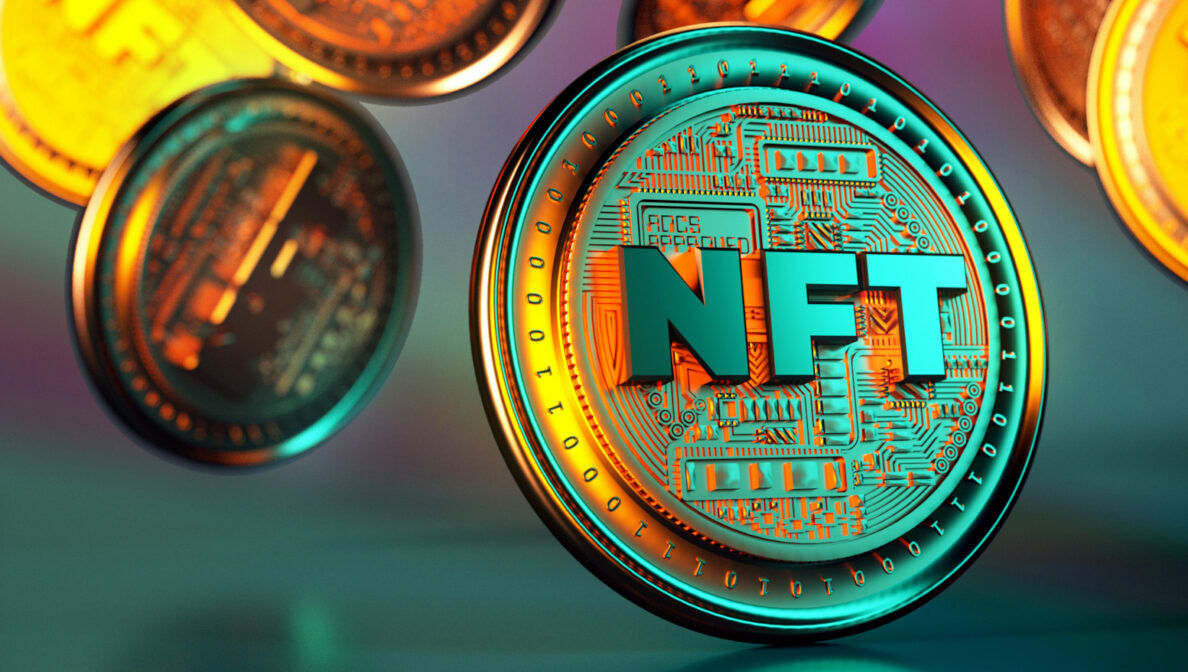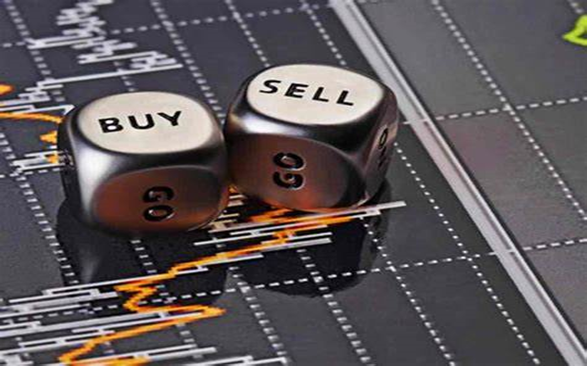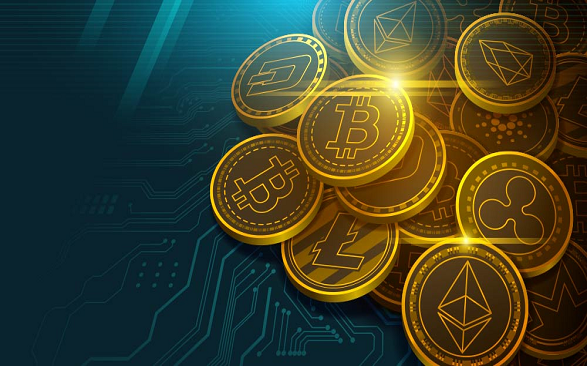Following the phenomenal rise of non-fungible tokens (NFTs), there has been a great shift in the way we view and interact with artworks, music, videos, and other digital collectibles.
Categorically, NFTs have taken the world by storm, with so many of them selling for millions of dollars on several NFT marketplaces. But as these NFT marketplaces continue to increase in number, choosing which one to utilize for minting, creating, or trading preferred digital collectibles may be challenging to some.
Here is a highlight of the top five NFT marketplaces that you can adopt for all your NFT-related activities.
First, what is an NFT marketplace?
A marketplace is simply where buyers and sellers meet to exchange goods or services for money. NFT marketplaces are quite similar to your regular markets where you grab your groceries or clothes.
In a nutshell, the term NFT marketplace describes any virtual platform where users can discover, create, mint, as well as buy and sell NFT 24/7.
All you need to access any NFT marketplace is a web or mobile app crypto wallet. However, you must hold enough required crypto tokens to pay for transaction fees on the marketplace.
While most NFT marketplaces are Ethereum-based, we also have those that support Polygon (MATIC), Solana, Tezos, and BNB among others.
Top 5 NFT Marketplaces
- OpenSea
Launched in late 2017, OpenSea became the world’s first-ever marketplace for non-fungible tokens. At its inception, the NFT marketplace could only support Ethereum which likely hindered its adoption rate.
Over the years, OpenSea developed to offer cross-blockchain support across Ethereum, Polygon, Klatyn, and Solana. The NFT platform is designed to be used by both beginners and experts for trading rare and unique digital assets including sports NFTs, trading cards, virtual lands, domain names, digital arts, and other collectibles.
Following its wide user base and a huge number of supported digital assets, it is regarded as the world’s leading NFT marketplace. As of the first quarter of 2023, more than one million active users have linked their wallets to OpenSea. Accordingly, the NFT marketplace has the largest 24-hour trading volume.
Notably, OpenSea offers more than 200 categories of items on its platform with over 80 million types of NFTs available for trading.
Using a unique infrastructure, the OpenSea platform allows users to mint and fix their seller’s profiles. As a result, the transaction fee for each sale made on the marketplace is only 2.5% of the bid price.
By adopting a unique infrastructure, OpenSea does not have custody of users’ listed items or NFTs. The platform enables peer-to-peer trading via a smart contract and stores listed items in users’ wallets. It supports over a dozen crypto wallets including Metamask, Coinbase Wallet, and Trustwallet.
For fees, Opensea charges only 2.5% of the bid price per NFT sold.
Read also: What are the top 5 centralized crypto exchanges you should know?
- SuperRare
Co-founded by John Crain, Charles Crain, and Jonathan Perkins in 2018, SuperRare presents a new art market where users can create, collect and curate non-fungible tokens of different types.
SuperRare is an NFT marketplace built on the Ethereum blockchain where rare digital arts can be bought and sold seamlessly. The platform empowers artists to earn perpetual royalties on their creative works and create freely without censorship or exploitation.
Also, it helps creators to stay independent with custom smart contracts, instant payments, and direct relationships with their audience. With its Sovereign Smart Contract, independent artists on SuperRare can deploy custom smart contracts and import artworks minted elsewhere.
Likewise, the SuperRare NFT marketplace equips collectors to find hidden gems and earn collector royalties on resales. With over $200M of art collected and over $5M in artist and collector royalties paid, SuperRare has grown into the premier NFT art platform.
For context, royalty fees are a commission that is earned by the original NFT creator on all secondary sales of their work.
Notably, every piece of art on SuperRare is a single edition and anyone can securely verify the creation and ownership of each digital art on the platform. More so, SuperRare is designed such that artworks are minted directly by the original artist from their own unique wallet address.
Upon minting, they are tokenized on the SuperRare platform and listed for collectors to purchase based on the creator’s price. Tokenized here means that the token is linked to the artwork, representing a permanent record of provenance and collectible ownership of the artwork. In addition, every bid, sale, and collector information is immutably recorded in the token’s history.
This widely adopted digital art ecosystem is community-owned as RARE token holders propose and vote on platform improvement proposals. RARE is the native currency of the SuperRare platform with its total supply capped at 1,000,000,000.
3 – Binance NFT
The world’s largest blockchain ecosystem and digital assets exchange launched its NFT marketplace in June 2021. To access the platform’s full functionality, users must first register and verify their identities with Binance.
Only verified users can create or trade NFTs on Binance and must have at least 10 followers on their NFT user profile.
The popular Binance NFT marketplace features all forms of digital artworks and collectibles with high liquidity for users to launch and trade non-fungible tokens.
The platform which brings creators, collectors, and NFTs enthusiasts together, features 3 product lines including Marketplace, Events, and Mystery Boxes.
The marketplace enables collectors to mint, sell, bid, and purchase created/ listed NFTs from creators. The events product encompasses premium and exclusive NFTs created by leading global digital brands, artists, musicians, athletes, and celebrities. A Mystery Box is simply a box that contains only one random NFT. It could be a Normal, Rare, Super Rare, or Super Super Rare NFT.
Mystery boxes containing various curated collections can be purchased by users. There are also ‘premium’ and ‘standard’ collections available. Premium collections feature items minted by popular names, whereas standard collections feature items minted by regular users.
Since its inception, the Binance NFT marketplace has facilitated NFT drops for well-known celebrities and organizations such as Cristiano Ronaldo, Russell Simmons, Paulo Del Valle, the Uganda National Museum, Franck Muller, and Parimatch.
For Binance NFT fees, the platform charges 1% of the sale price of each NFT sold as a service fee. While there are no fees for listing NFTs on Binance NFT, for every NFT sold, a percentage of the sale price (royalty fees) is paid to compensate the original NFT creator. Royalty fee ranges between 0-10% depending on the NFT collection creator.
At the time of writing, the four cryptocurrencies supported on the Binance NFT marketplace include BNB, BUSD, MATIC, and ETH.
4 – Rarible
This is another NFT marketplace that has grown in popularity in recent years, with over $300 million in trading volume to date. The Rarible platform is well-known for its enforced royalties, zero code, and zero cost model.
Underpinned by the ‘Rarible Protocol’ and community-governed NFT trading API, Rarible prides itself as a top multichain, community-centric NFT marketplace. It simplifies the building of community marketplaces and the integration of ground-breaking NFT projects.
To achieve this, Rarible supports multiple crypto wallets and blockchains including Ethereum, Polygon, Solana, Tezos, and Immutable X. Some of the multiple wallet providers that users can sign in with at Rarible are MetaMask, Coinbase Wallet, Torus, Portis, MyEtherWallet, WalletConnect, Magic GameStop, Beacon, Temple, and Phantom.
For service fees—fees charged on transactions by NFT marketplaces for their services—Rarible receives 1% on the seller side and 1% from the buyer side for every NFT sale.
Read also: Top 5 Decentralized Crypto Exchanges You Should Know
5. Nifty Gateway
This NFT marketplace was founded in 2018 by twin brothers Duncan Cock Foster and Griffin Cock Foster. But in 2019, Gemini, a top-tier crypto exchange owned by the Winklevoss twins, acquired Nifty Gateway.
This is an Ethereum-based marketplace where users can mint, sell, and buy exclusive NFTs. The marketplace is well-known for having one of the world’s highest-rated verification process systems.
Teaming up with top artists and brands to create collections of limited edition, high-quality NFTs, exclusively available on its platform, Nifty Gateway seeks to make NFTs accessible to everyone.
Unlike most NFT marketplaces, Nifty Gateway is a custodial platform with no gas fees or service charges. The NFT platform holds users’ assets by storing them in a secured wallet, powered by Gemini’s custody technology. Thus, the safety of users’ digital collectibles is guaranteed. In case of account loss or password misplacement, Nifty Gateway allows users to retrieve their accounts and assets.
Conclusion
As NFT technology continues to boom, the role of NFT marketplaces becomes increasingly important. While we have listed only a few of these platforms where you can carry out all kinds of transactions related to non-fungible tokens, several others exist.
On the whole, it is pertinent to do your own research before settling for any of these NFT marketplaces.
Read also: A Guide to Identifying a Good NFT Marketplace
Credit: Ndianabasi Tom
A crypto journalist and content writer who has been talking about cryptocurrency and blockchain technology since 2018, Ndianabasi is a Writer at Crypto Asset Buyer (CAB).
Discover more from Crypto Asset Buyer
Subscribe to get the latest posts sent to your email.





